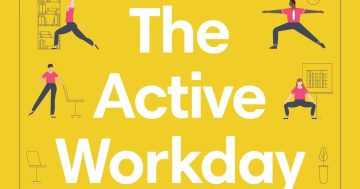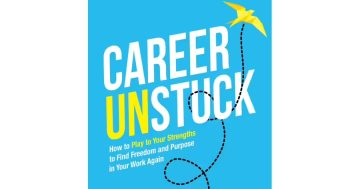Arianna Huffington* discovers an Irish code of conduct for businesses that navigates the changed realities of work brought about by the pandemic.
 We have just opened our Thrive Global office in Dublin, and I’ve been reading more about Ireland’s new code of conduct for businesses with the very-of-the-moment title, Right to Disconnect.
We have just opened our Thrive Global office in Dublin, and I’ve been reading more about Ireland’s new code of conduct for businesses with the very-of-the-moment title, Right to Disconnect.
While it’s not a law, it’s a set of guidelines and best practices issued by the country’s Workplace Relations Commission.
The aim is to “assist employers and employees in navigating an increasingly digital and changed working landscape which often involves remote and flexible working.”
The new code has three essential provisions.
They are: The right of employees not to routinely work outside normal business hours; the right to not be penalised for not working outside those hours, and the duty of employees to respect their co-workers’ right to disconnect.
All three provisions are important, but it’s the third I find most exciting.
It reflects a shift toward a more human workplace, where we as individuals are looking out for each other and respecting our collective need to disconnect and recharge.
In fact, the code makes that point very explicit, stating as follows:
‘While placing the onus of management of working time on the employer is appropriate, individual responsibility on the part of employees is also required.’
This is such an important step forward because workplace policies alone aren’t enough.
Top-down decrees can create guardrails and expectations, but when we take ownership of our own time and are mindful of others’ — including their mental health and risk of burnout — that’s a culture shift.
Sure, we can disconnect from work, but that doesn’t necessarily mean we’ll be connecting with what matters.
Work isn’t the only thing we need to disconnect from.
We can seamlessly log off Slack and Zoom, and log right back on to social media, video games, or start doom-scrolling or binge watching.
These can be just as exhausting and depleting, along with all the other forms of technology and distraction that keep us from connecting with ourselves and those who matter in our lives.
Organisations can have perfect policies encouraging people not to be working or sending emails after hours.
That doesn’t mean that employees will be using that time to recharge, reconnect with what matters and thrive.
When announcing the Right to Disconnect, Irish Deputy Prime Minister, Leo Varadkar said the pandemic had transformed working practices, and many of those changes would be long-lasting.
“Although much of the impact of the pandemic has been negative… it also offers an opportunity to make permanent changes for the better,” he said.
I couldn’t agree more. That’s why we’re expanding and adding Dublin to our global family of offices in New York, San Francisco, Athens, Bucharest and Melbourne.
The flipside of the Right to Disconnect is our hard-wired need to connect with ourselves, with each other and with the things that bring us joy.
We’re not going to be able to legislate ourselves out of this problem — it’s going to require all of us to create a culture shift that helps us thrive in all aspects of our lives.
*Arianna Huffington is the founder and Chief Executive of Thrive Global; the founder of The Huffington Post, and the author of 15 books, including, most recently, Thrive and The Sleep Revolution.
She can be contacted through the Thrive Global website.











